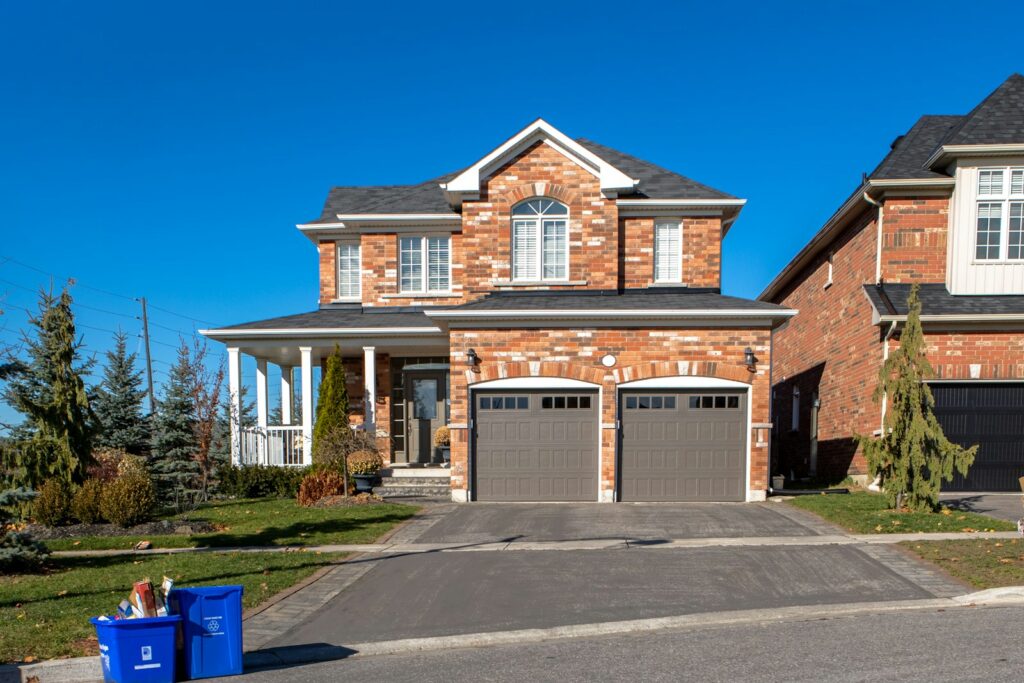
With interest rates surging, many Canadian families are reconsidering their plans to buy a home and are opting to rent instead. But you might be wondering about the cost of renting a home across the country and how this will impact your family’s monthly budget.
In this article, discover the average rental prices in major cities across Canada, as well as the factors that influence rental costs. It also touches on current trends in the real estate market and how this is impacting living expenses for Canadian families, both now and in the future.
If you’re on the hunt for a rental property in Canada, you’ll find plenty of choices online. Rental comparison websites such as rentola.ca list apartments and homes in all corners of the country, whether you’re after a two-bedroom place or a little more room to move. It gathers private listings from all of the country’s real estate websites, saving you time and effort in the search for your new home.
ErikaWittlieb, Canva.com
Average rental prices across Canada
The average cost for a family to rent a property in Canada varies widely, depending on where in the country you want to live. For example, in Toronto, the average price of a two-bedroom property is around $2600 per month while a three-bedroom house will set you back $2850. On the other hand, a two-bedroom property in Edmonton costs roughly $1500 per month while a three-bedroom is $1660.
In Ottawa, rental prices are around $2000 for a two-bedroom family home and $2130 for a three-bedroom place while Calgary is slightly cheaper at $1885 and $1895 respectively. A two-bedroom family home in Montreal will set you back around $2180 and a three-bedroom is roughly $2700. In Quebec City, you can pay just $1500 for a two-bedroom rental and $2000 for an extra bedroom.
At the more expensive end of Canada’s rental spectrum are Vancouver, Hamilton and Mississauga. Two-bedroom places in Hamilton and Mississauga are around $2700 a month and three bedrooms are just over $3000 while the same in Vancouver costs around $3700 for a two-bedroom home or $4500 for three.
As you can see, Vancouver tops the list of most expensive cities for renters in Canada, with Toronto coming in second place. Smaller Ontario cities such as Guelph, Hamilton and Barrie are also relatively expensive. However, this reflects the fact they tend to have larger properties with extra bedrooms, making them popular with families. In all three cities, the average cost of a rental is around $2100 per calendar month across all types of listings.
Factors that influence rental costs
While the above figures offer a useful guide, they don’t tell the whole story. Rental prices in Canada vary due to several factors, aside from the property’s location and number of bedrooms. Apartments tend to be much cheaper than standalone homes, which come with extra space and gardens. Balconies, views and recreational facilities such as swimming pools can add significantly to the asking price, as does the condition of the home, recent renovations and any included appliances.
The property’s proximity to amenities can also influence its monthly rent, with those located close to schools, parks and community facilities particularly sought after. If the house or apartment is within walking distance of popular cafes, restaurants and supermarkets, you may pay more for the convenience.
The time of year can also impact the asking price of rentals, particularly around Canada’s coastal areas and ski resorts. In the summer months, the demand for rental properties near the seaside tends to increase while more people want to be near the snow in the wintertime. Rentals with pools are also more likely to fetch a higher asking price in the warmer months.
Rental trends in Canada
Over the last 12 months, Canada’s rental prices have increased 9.6%, putting increased pressure on family budgets. Inflation has resulted in everything from groceries to gas and building supplies going up, with rents no exception. Increased stress and competition in the property market are also contributing to the situation, as is a lack of supply.
Soaring interest rates have been the leading factor in the cost of rentals going up across Canada, with more people staying in the rental market, rather than looking to buy. Apartments have been in particularly high demand, even amongst families, as renters look to reduce their living expenses.
Migration patterns are another factor influencing rental prices in Canada, with large numbers of people arriving to meet job shortages and spur financial growth. Unfortunately, there are not enough homes available to house the rapidly growing population or absorb so many new residents into the real estate market.
The Canadian residential market can’t build new apartments and homes quickly enough to keep up with the growing demand, particularly in the country’s urban areas. Labour shortages and high construction costs are making it less profitable for investors to develop new residential housing, resulting in a drop in the availability of newly constructed rentals. Lengthy planning permission procedures are also adding to woes, with long wait times and more hoops to jump through for those who want to build from scratch.
Advantages of renting in Canada
While there are disadvantages associated with renting, it also comes with some clear pros. A long-term rental brings with it some stability in terms of week-to-week living costs, with prices only permitted to be increased at the end of the lease. There are no ongoing maintenance expenses to take renters by surprise and you don’t have to worry about paying property taxes.
Renting also gives you the flexibility to easily move in response to job opportunities or a change of scenery. In some cities, the cost of purchasing a property is beyond the means of many while the rental prices in the same area can be relatively affordable. This means you may be able to rent in areas that you couldn’t afford to buy in.
While some argue that long-term renting provides you with nothing to show for your money, it does avoid the hassles and ever-increasing expenses associated with homeownership. If the current trends in the Canadian rental market are anything to go by, there may be a stronger shift away from homeownership in the future.













